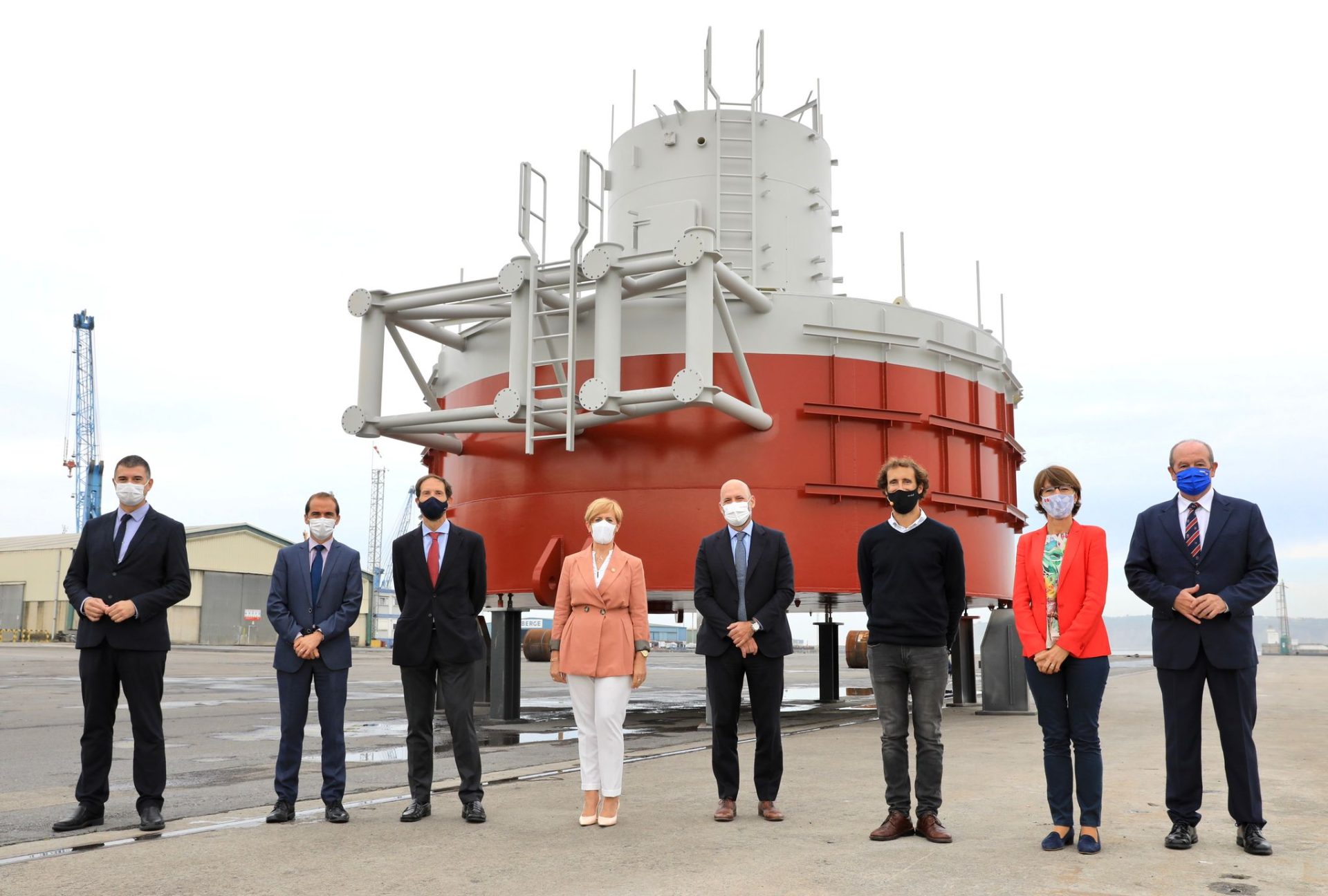- Following the success of the platform that was commissioned in 2018 at BiMEP, Biscay Marine Energy Platform, the TECNALIA research and technological development centre has developed a new version of the HarshLab laboratory, which is bigger, unique in Europe and has increased features and capabilities: it will enable the operation of equipment on board to be tested thanks to electrical and data connection, and samples to be lowered to the seabed.
- In this way, companies will be able to reliably predict how the different systems to be used in the marine environment are going to perform, which will extend their useful life and affect the safety of their use. HarshLab will therefore address the needs of the offshore industry and increase its competitiveness.
- It was launched this morning in Bilbao Port at an event that was attended by the Basque Government’s Regional Minister for Economic Development Sustainability and Environment, Arantxa Tapia; the Chairman of TECNALIA, Alex Belaustegui; the CEO of TECNALIA, Jesús Valero; the Managing Director of the Basque Energy Agency, Iñigo Ansola; the Director of the Basque Energy Cluster, José Ignacio Hormaeche; and the President of the Bilbao Port Authority, Ricardo Barkala.
- The previous version of this unique laboratory, the only one of its kind in Europe and which has provided a service to more than 20 companies, has conducted tests related to the development of new materials and solutions against corrosion, ageing or fouling in the marine environment.
22 September 2021. The sea is an infinite source of energy and other resources, but accessing them in such a complex environment, like the marine environment, represents a major challenge for companies. Since 2018, Basque companies have had a laboratory to test materials and solutions in a real offshore environment, developed by the TECNALIA research and technological development centre with the backing of the Basque Government and the support of the Basque Energy Cluster.
Following the success of this offshore laboratory, known as HarshLab and located at BiMEP, Biscay Marine Energy Platform, the research and technological development centre has developed a new laboratory, which is bigger, unique in Europe and connected, with increased features and capabilities to carry out new tests and R&D activities to address the needs of offshore industries and increase their competitiveness. For example, it will enable the operation of equipment on board to be tested and samples to be lowered to the seabed.
It was launched this morning in Bilbao Port at an event that was attended by the Basque Government’s Regional Minister for Economic Development Sustainability and Environment, Arantxa Tapia; the Chairman of TECNALIA, Alex Belaustegui; the CEO of TECNALIA, Jesús Valero; the Managing Director of the Basque Energy Agency, Iñigo Ansola; the Director of the Basque Energy Cluster, José Ignacio Hormaeche; and the President of the Bilbao Port Authority, Ricardo Barkala.
A connected laboratory
The launch of the first HarshLab in 2018 represented a breakthrough for the offshore industry in Europe and since then, it has provided a service to more than 20 companies, testing more than 500 products and samples related to new materials and solutions against corrosion, ageing or fouling in the marine environment (the phenomenon through which solid material accumulates and adheres to elements submerged or in contact with seawater: algae, mussels, barnacles, among others).
Like its predecessor, this new version, which will be launched in the coming weeks, will enable new materials and developments for the offshore industry to be tested in a real environment under controlled conditions. As new features, it will be connected to the grid and communications network thanks to a dynamic cable that will connect it to the BiMEP underwater network, which will enable data to be collected and its subsequent analysis. Thanks to this connection, HarshLab will be able to test the operation of equipment on board and make it easier to handle loads by means of several embedded systems: hydraulic crane, outer davit and inner hoists.
The new laboratory has a diameter of 8.5 metres by 7 metres in height, which provides it with greater testing capacity. On the other hand, thanks to the revamped characteristics of this new version, anchoring elements can also be tested or tests can be performed on the seabed up to a depth of 65 metres. It also has its own weather station and an underwater ROV (Remotely Operated Vehicle) to carry out inspections remotely.
In short, this laboratory will enable materials, components and equipment to be assessed when they are submerged, in the atmospheric area (above the water), in what is known as the splash area (where the waves break) and on the seabed. To date, this information was obtained from laboratory testing but the results were not always extrapolated to what actually happens at sea. In this way, companies will be able to reliably predict how the different systems to be used in the marine environment for the research and development of new technological solutions for the offshore industry are going to perform, which will affect their safety and extend their life cycle.
About TECNALIA
As part of the BRTA (Basque Research and Technology Alliance), TECNALIA is a benchmark research and technological development centre in Europe, with 1,400 professionals representing 30 different nationalities, focusing on transforming technology into GDP to improve people’s quality of life, by creating business opportunities for Companies. Its main areas of action are: Energy Transition, Digital Transformation, Advanced Manufacturing, Sustainable Mobility, Urban Ecosystem and Health.

